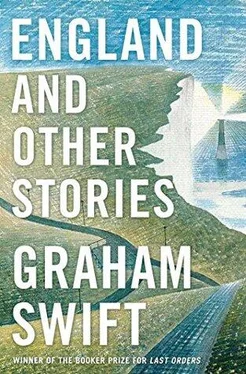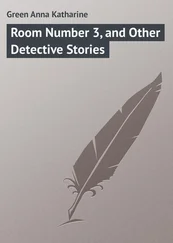‘England. A camp in Dorset to be precise, not far from Sturminster Newton. The truth is my father couldn’t believe his luck. He’d grown up worshipping everything English. He spoke English, good English, not Italian. And there he was in the English countryside, in spring — thatched cottages, primroses, bluebells, everything he’d only read about in books. He even got himself a bicycle and whizzed round the lanes.’
Dr Shah would give a sympathetic shrug.
‘No, I don’t quite fully believe it either. I don’t believe it can have been all fun for a bunch of Indian soldiers in Dorset in 1944. Just think about it. But I’m only telling you what my father told me. He called it luck.
‘It wasn’t the only piece of luck either, though you might think this next piece of luck wasn’t any kind of luck at all. He took part in D-Day. He was one of very few Indian soldiers who did so. He served the British in their war. To the utmost, you might say. He was on that big fleet of ships. But he was very soon on a ship coming back, and very soon after that he was in a ward in a hospital here in London, commandeered by the Army, where all the patients had serious wounds to the leg, or legs.
‘I don’t know the details. It was somewhere in Normandy, not far from the beaches. I’m not sure he knew himself. All he’d say was, “I was blown up.” Once he said, “I was blown up and I thought I was dead.” And he went a little further still. “I thought I’d been blown to pieces,” he said, “and had come back together again as somebody else.” That’s not physiologically possible, of course. I can’t comment on that as a medical man. But then — we transplant hearts.’
Dr Shah would smile.
‘He was in the leg unit, or more plainly the amputation unit, though no one, I suppose, would have called it that. The only saving grace was that it might have been better to have a leg removed there than back in the thick of things in France. Though sometimes, I believe, it’s important to amputate a leg fast. But the crucial fact is that he was the only Indian man, the only brown man, occupying any of the beds. Not a saving grace you might think, but wait.
‘I’ve never amputated a leg. It’s not my field, as you know. But anyone knows it’s an extreme procedure, if sometimes the only way of saving life. And I’m talking about over sixty years ago and about patients who might have had other complicated injuries too. In short, not every amputee would have survived and every man on that ward would have known the risks.
‘My father once showed me a photograph when I was a boy. It was of three men in pyjamas, in wheelchairs, all of them missing a leg. But all of them smiling, as if they were pleased with their stumps. It was a rather scary photograph to show a small boy, but my father wanted me to see it. He told me the men were some of his “old pals”. Then he told me that if ever I should feel disadvantaged in life I should remember his old pals. “Disadvantaged”. That was his actual word. It was a big word for a small boy, but I remember it clearly.’
Dr Shah’s smile would broaden again and his listener might think — as he or she was perhaps meant to think — that ‘disadvantaged’ sat strangely on the lips of a senior consultant in an expensive pinstriped suit.
‘I used to think that the smiles on the faces of those amputees were a bit like my father saying he’d had the time of his life in Dorset. Anyway there was another photograph of him and his bicycle, and he’s smiling in that. You need two legs to ride a bicycle.
‘Working on the leg unit there were of course doctors, surgeons, nurses. One of the nurses was called Nurse Watts, but my father would get to know her as Rosie. And I would get to know her as my mother. One day, apparently, my father asked her if her family had kept a newspaper announcing the news of D-Day. Many families kept such a thing. Could she bring it in to show him? He wanted proof that he’d been part of history. But it was the start of something else.
‘Working on the leg unit too was a doctor, a doctor and assistant surgeon — only a junior, not the top man at all — who discreetly let it be known to a few of the men that if they let him “do” them he could save their leg. Also of course, by implication, their life.
‘Quite an offer, you might think. But so far not a single patient had signed up to it. It wasn’t that he was only a junior. The simple reason was that the man’s name was Chaudhry and he was a brown-skinned doctor. From Bombay. From Mumbai. He too had come from India to serve the British, in a medical capacity. And they — the other patients, I mean — didn’t want his brown fingers meddling with them. In fact there was even a sort of soldiers’ pact among them that the brown doctor’s offer should be refused.
‘Silly fools.’
Dr Shah would leave a well-rehearsed pause at this point.
‘But you can imagine that the position and response of my father was rather different.’
There’d be another pause, almost as if he had come to the end.
‘I hardly need to tell you, do I? The others underwent their amputations, successfully or not, but my father’s leg was saved. After a while he was even able to walk again, almost as easily as he’d always done. He had a very slight limp and — or so he liked to say — perhaps a few tiny grains of metal still inside him, courtesy of Krupp’s. But that’s not all. His relations with Nurse Watts — with Rosie, my mother — had meanwhile reached a point where they both clearly wanted to take things further. Against all the odds. To take them further, in fact, for the rest of their lives.
‘You can imagine it, can’t you? All those men with their stumps. It wasn’t just their legs they’d lost, was it? They’d lost out on something else. And there were Ranjit and Rosie, like two turtle doves. As my father put it, he got his leg and he got the girl too. Now do you see why he talked about his luck?’
Dr Shah would sometimes leave things there. It was the simple version and it was enough. He’d only add, ‘And that’s how I came to be born in Battersea, in 1948.’ He’d leave a pause and look closely but disclaimingly at his patient. ‘No, my field isn’t genetics either, and I can’t explain it, but it’s how I came out.’
But if he wished to tell the longer and fuller version, he’d go on.
‘Imagine it. London, Battersea. At the end of a war. Against all the odds. But my mother always said there were no two ways about it. Ranjit was the one. And if she could fall in love with a man with his body all smashed up and the possibility that he’d lose a leg, then wasn’t that a pretty good test of love? Setting aside the other matter that had nothing to do with the war.
‘Let me tell you something else. For nearly ten years my father was a hospital porter. You won’t catch me talking down to a hospital porter. Then he rose to the dizzy heights of hospital administration. I mean he was a clerk, lowest grade. With his education. Having fought at D-Day. And all of that because it was all he could get. And that only because of some string-pulling from his nurse wife — and no doubt from Dr Chaudhry too.
‘But he accepted it and stuck with it. Because, I have no doubt, he thought it was worth it, because he thought it was a small price. And for the same reason he began gradually to realise that he’d never go back to India. It was how it was. His home was in England now. His family, his mother and father in Poona — he’d probably never see them again.
‘He once told me that he looked at it like this: he might never have gone back anyway. He might have been killed in France. Or in Italy. And hadn’t he done a fine thing anyway, even in the eyes of his family? Married a British lady. Perhaps he was right. He’d been blown up and he’d become somebody else.
Читать дальше












